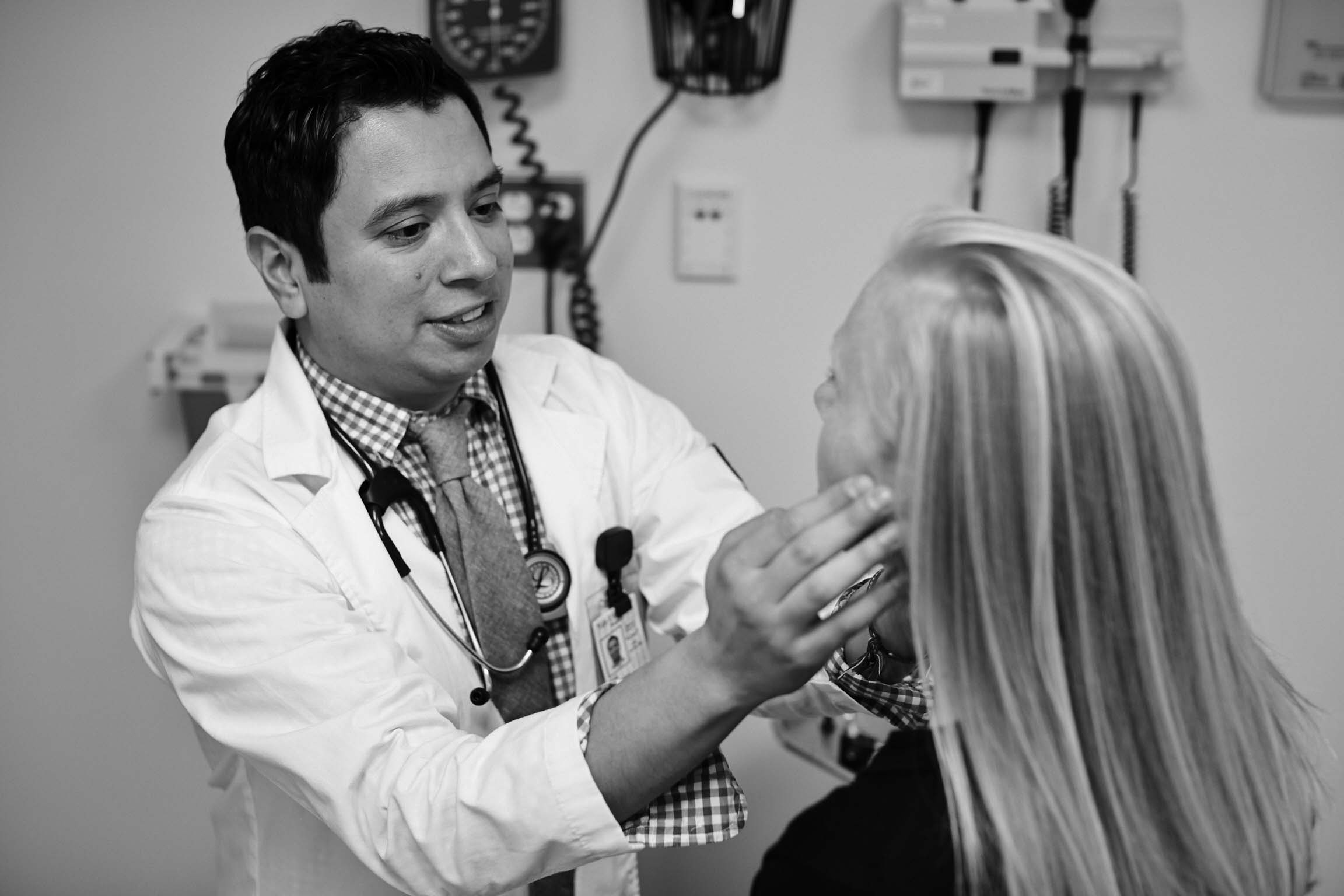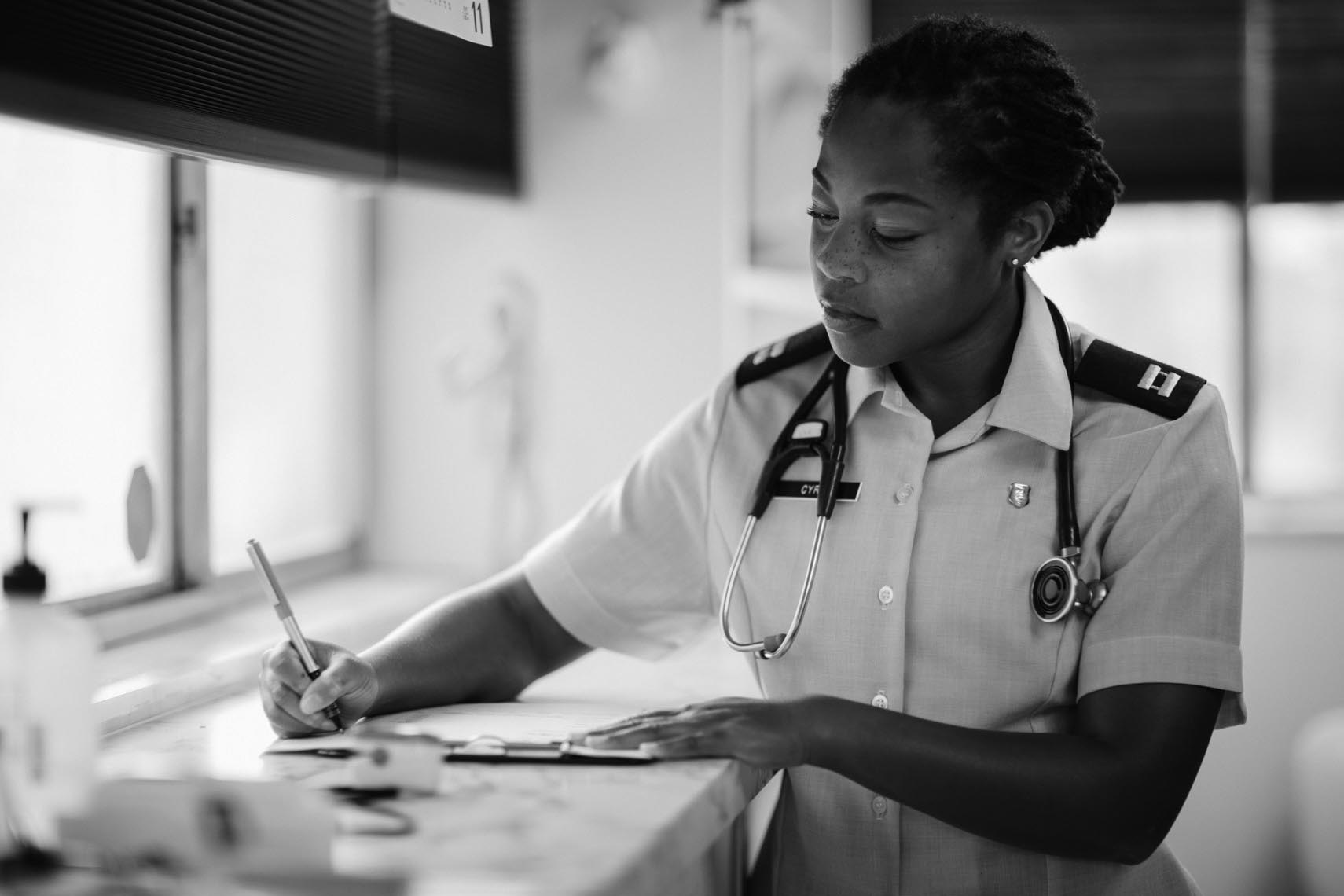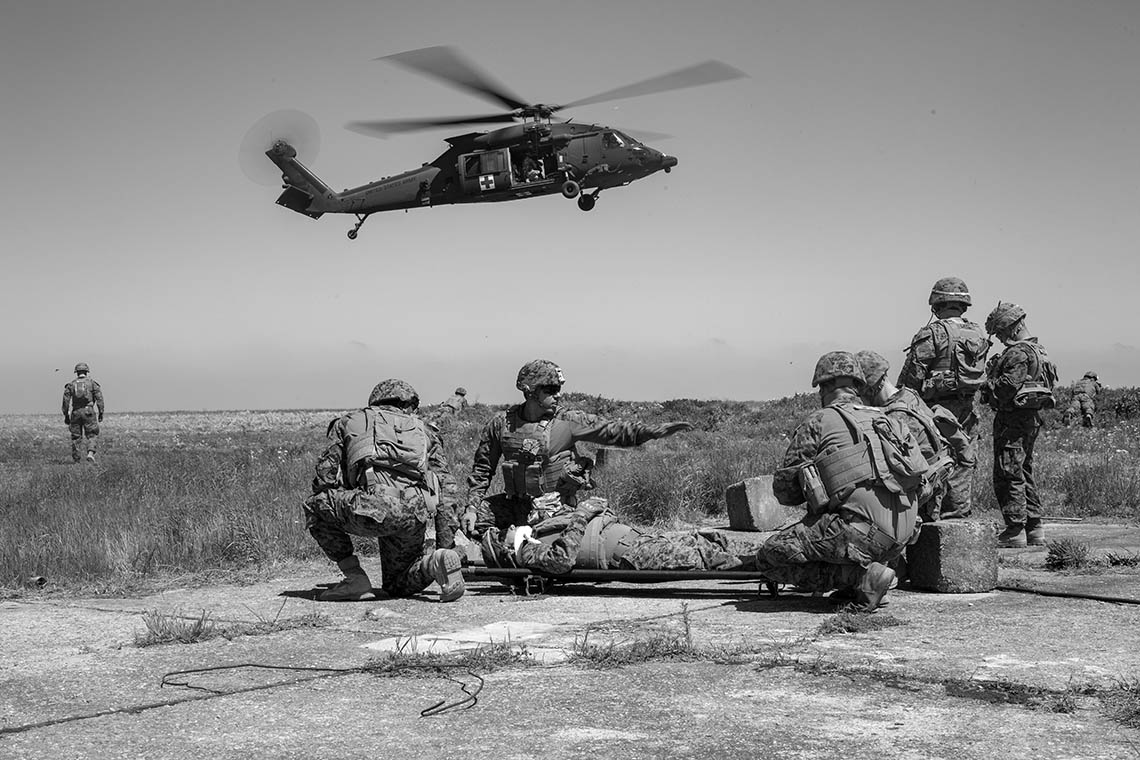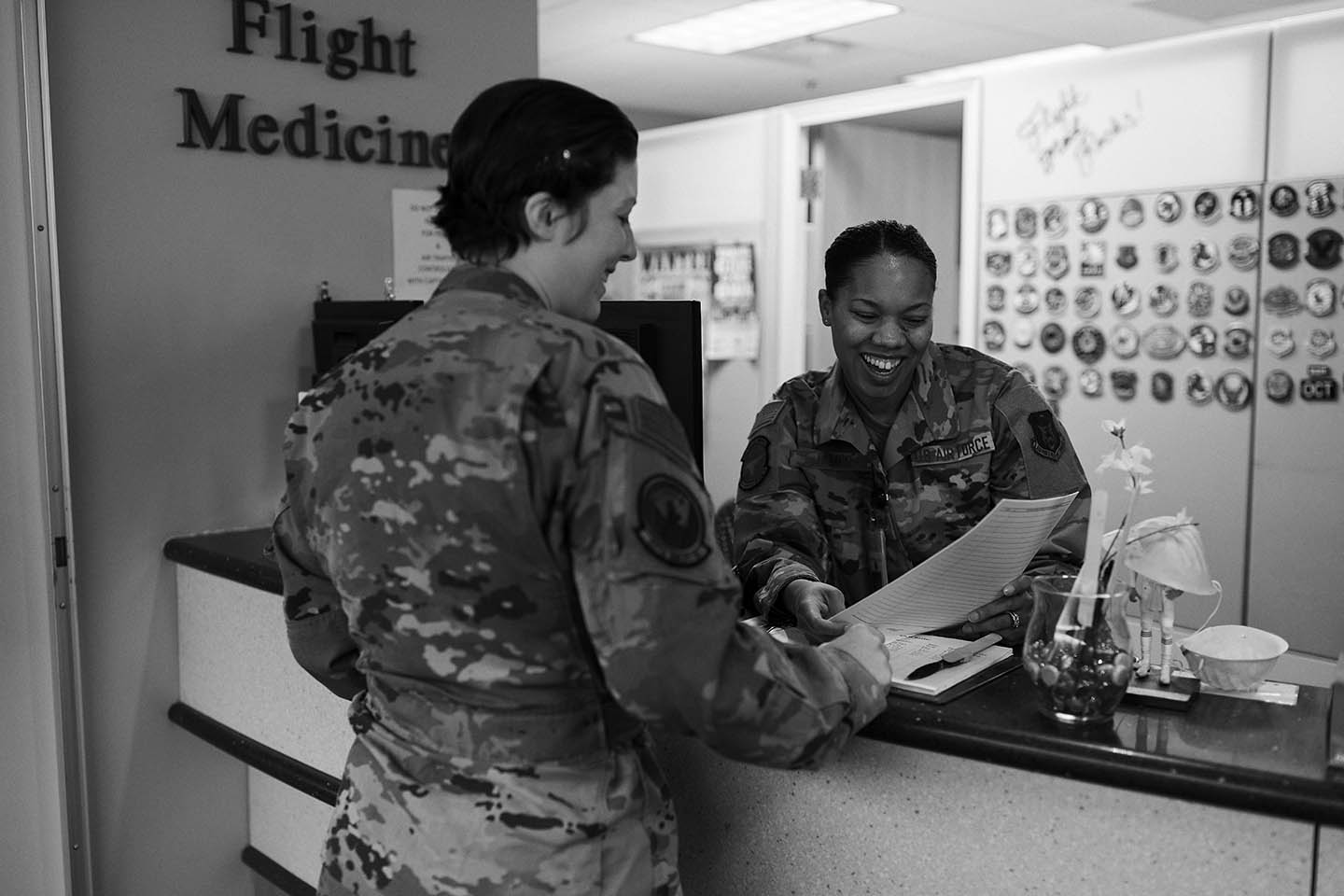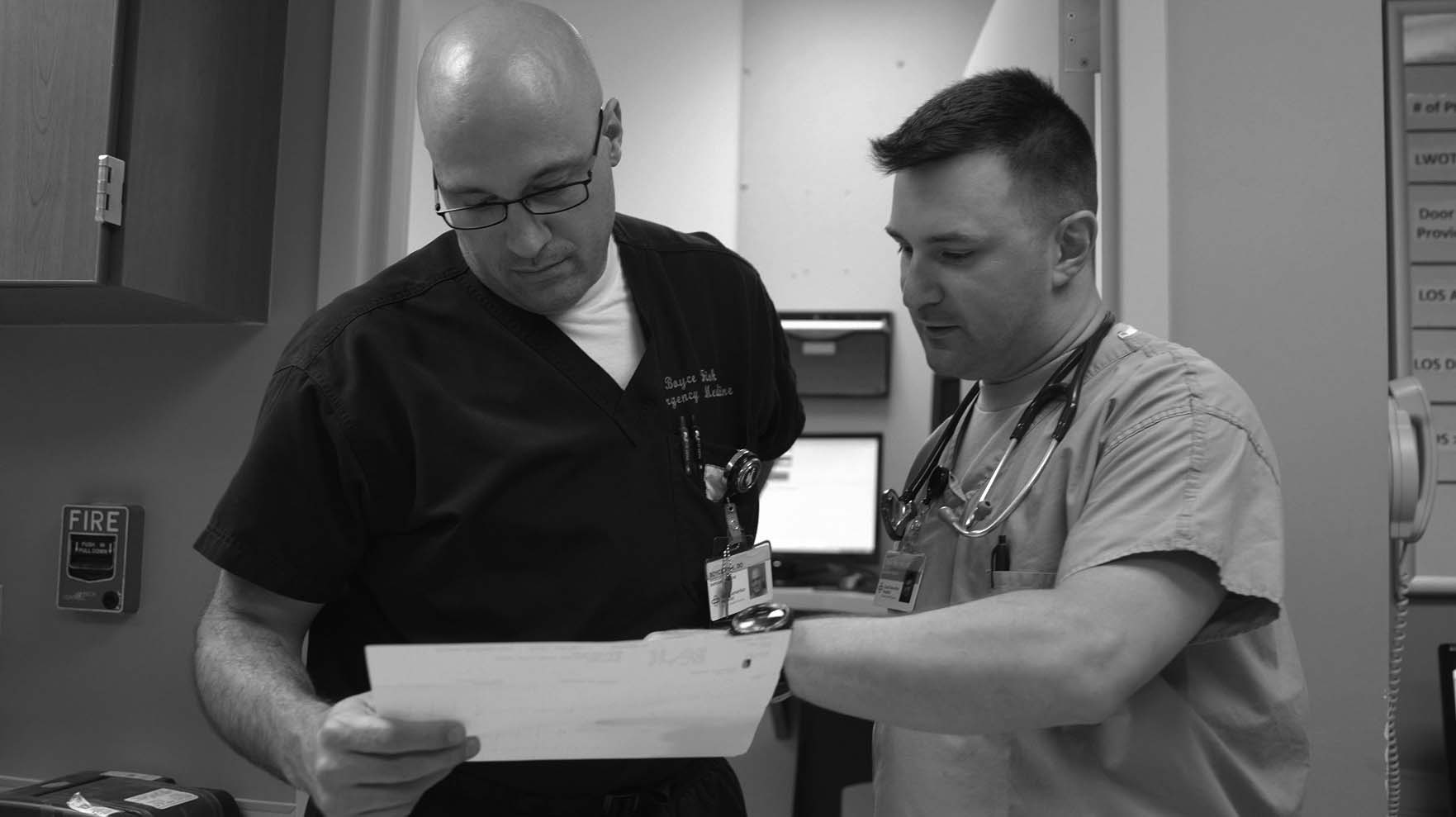- FAQs
- |
Military Benefits + Life on Base
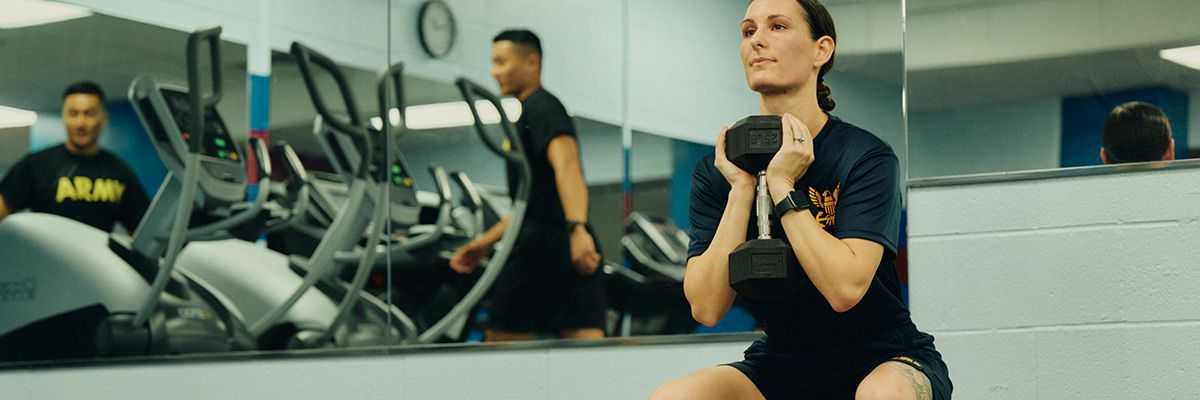
Beyond the natural bonds and camaraderie that can thrive on military bases, there are also many dedicated programs and services that help support the basic sustenance and living quarter needs of all service members who call them home. While serving on base, you’ll find that all of the services and needs you would experience in a civilian practice are met, and often with lower- or no-cost options that are only available to service members and families.
Day in the Life
Watch Army Battalion Surgeon Dr. Winegarner enjoy downtime with his family on an Ice rink.

Hunter Winegarner, M.D.
Special Forces Battalion Surgeon, Army
Ice Hockey With Family And Friends
When Hunter is off-duty, spending time with his family is top priority. Tonight after work, Hunter and his family head to the local ice rink to meet with friends and skate with members of his son's ice hockey team.
WINEGARNER: So we're getting on home, and spending time with the family at five o'clock or so every day is enough time before my kids go to bed — they usually go and do something fun. A couple times a week we'll go and do some ice hockey with my son.
CORMAC: Daddy's home! Yay!
WINEGARNER: Hey, buddy.
CORMAC: Hi!
WINEGARNER: How's it going? You guys ready for hockey tonight?
REESE: Yeah!
WINEGARNER: Yeah?
MORGAN: Are you ready?
WINEGARNER: Yeah? Cormac, can you help me with any of these? I need some help, big guy.
REESE: I'll drive.
MORGAN: Reese wants to drive. (laughter)
WINEGARNER: We started Cormac out when he was — how old were you when you first started skating?
CORMAC: Two.
WINEGARNER: Two. I think we got him on his first set of skates pretty quickly after he learned how to walk, but now how old are you?
CORMAC: Four.
WINEGARNER: He's four, and that's kind of when kids can start skating with a group and doing actual hockey stuff.
Good. Coming around. All the way around. And when you get it, take a shot. Oh my goodness, you shot all the way down the ice! Holy cow!
I guess I started skating when I was five, and growing up in Alaska it was kind of the thing to do. And I've continued to play, even as a doctor. Some of the guys that came out today are guys that I've met with my unit that also play hockey, and it continues to be a big part of my life and something that's really important to me. It's a misconception if people think that being an Army doctor is going to be too busy to have a life outside of work. As this guy can attest, there's times where it's busy and there's times where it's hard to make it happen, but for the most part it's part of the lifestyle of being an Army doctor that you get time with your family.
On-Base Family Housing
Hear a young Army couple share their living on-base experience.
On-Base Family Housing
Hear a young Army couple share their living on-base experience.
ACHINA WILLIAMS: My name is Tachina Williams and I’m a specialist in the U.S. Army.
DANTE WILLIAMS: My name is Dante Williams and I am also a specialist in the U.S. Army.
TACHINA: We’ve been together for almost seven years, and we’ve been here for about three years now. There are plenty of housing options on base for families. We got the option of choosing between three different communities. We chose to stay in Liberty Woods here in Fort Stewart.
TACHINA: We currently live in a four bedroom town home. It has a living room, and a kitchen area and a dining area. Upstairs we have four bedrooms, with our kids' rooms, our master bedroom, the guest bedroom and Dante's man cave. So, we have quite a bit of space so that we can just be comfortable in.
DANTE: Living on base is important to me because I can get to work in, like, five minutes. The commissary is right there, so everything that we need is here on base.
TACHINA: Quite often we have barbecues, or we grill out, and we either do it at the neighbors' house or our house. And they just bring their kids over and their families over and we just, you know, relax and watch the game and eat some barbecue.
DANTE: The things that I enjoy for the kids: There's a playground at every spot. We can go to either the one down the street or take them to the one around the corner, and so there's a variety of things that the kids can do.
TACHINA: My kids are really happy here. They love playing in the backyard, and every time they see somebody out the window, they're like, "Mommy, my friend's playing outside!"
TACHINA: When I see my children happy, it makes me happy.
Life on Base - Overview
Hear from service members all about the on-base facilities the Military offers.
Life on Base - Overview
Hear from service members all about the on-base facilities the Military offers.
MARTIN: There's a wide variety of things that are offered just on-base that Airmen, once they become part of the Air Force, that they can tap into. There's a health and wellness center, all the services are free and set up like a typical commercial gym, it's nothing out of your pocket. Once you join the Air Force, you have all these sports you can still play. The camaraderie, these guys that play out here, with playing soccer, it's the same guys that I'm going to be going out and getting deployed with as well.
HIEN: A commissary is a grocery store on base. You get everything you could get at any local grocery store. The fruits and vegetables are very fresh, organic groceries so I'm a big fan of that.
HELM: Base exchange, we are your department store, your electronics store, your clothing store, all your shopping needs you can accomplish at your local exchange on base.
SCOTT: This is the school age program, we offer before- and after-school care to children ages 5 to 12 years old, kindergarten through sixth grade. We give the parents peace of mind so that they can go and do their job and do their job well.
DENTON: In the Air Force, our facilities have family healthcare, pharmacy, laboratory, radiology, physical therapy, mental health, and they get the care they need at no-cost.
HOPPER: We rent out ski boats, pontoon boats.
AIGEN: bikes, to kayaks to fishing, anything you want to do outdoor-wise, we've got it.
NARRATOR: You have these services offered worldwide. Wherever we deploy people, we have the facility there to take care of them. Can you believe I'm on an Air Force Base?

